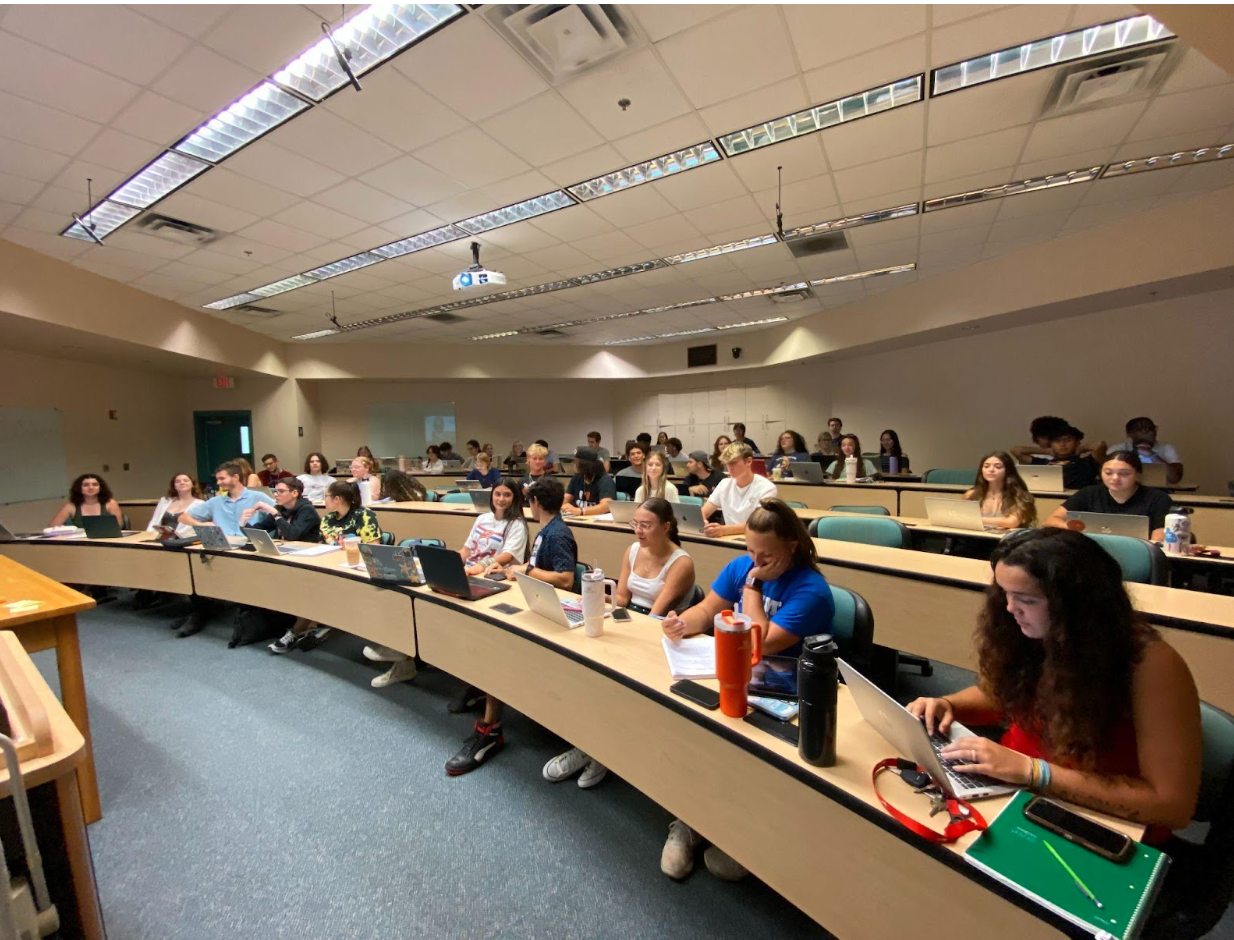Many are aware of the record breaking enrollment numbers New College has experienced this year due to the introduction of several athletic sports. However, the impact on factors integral to the college are just beginning to come clear. An important one is class size. Where it was once unusual to have a class roster beyond 20, students are now sitting in classes of 50. That is, if they haven’t been capped out.
As expected, introductory courses which satisfy Chart Your Course (CYC) requirements or are prerequisites to upper-level courses will always be in demand. But students agree that being capped out is a serious problem this year. Some faculty members, such as Professor of Global English Jessica Young, have allowed students to plead their case by writing a short blurb about why they should take her popular Terror and Fiction course.
Visiting Assistant Professor of Biology and Ecology Jose Soto took a different approach with his Foundations of Biology I course.
“Because there is so much interest in the class, it’s a first-come first-served basis,” Soto said. “Of course, I’m willing to make exceptions for soon-to-be-graduates needing the class.” Soto was able to get three Teaching Assistants (TAs) for his class and put the cap at 85, one section of 53 students and one of 32.
Third-year student Devyn Rolls was not one of them. Along with Foundations of Biology I, Rolls was also capped out of American Government and Civics. This class is the only one offered this term that fulfills the state-mandated Civic Literacy requirement for graduation.
Rolls explained their frustrations this way: “Small class sizes were a big reason why I chose this school and I don’t believe I’ll get that anymore. I need a lot of attention in classes because I like to bounce my thoughts and ideas off with the instructor. I can’t speak as deeply as I want to with the professor in a class this large.”
Luckily, Rolls was able to find an alternative Natural Science class. As for Civics, they’ll have to try again in the spring semester if they want a New College degree.
Similar to Civics, Principles of Economics is also the only offering of its kind this term. A sizable number of students had set their sights on this new course, created to combine Microeconomics and Macroeconomics into a single semester. Not only did it satisfy a multitude of CYC requirements, but it was also a necessity for Areas of Concentration (AOCs) such as Environmental Studies, International and Area Studies and, of course, Economics. Students such as first year Gabrielle Neff recognized this. She said that “too many people showed up to the mini class,” with standing room only at one point. Once classes officially started, demand didn’t dwindle much. The class moved from the ACE building to Hamilton Classroom 8 (HCL 8), which could better accommodate the 50 students enrolled in the course.
A class size of 50 doesn’t scare Professor of Economics Tracy Collins, the instructor for Principles of Economics. Collins has previous experience at large state universities. When asked how she plans to teach in this environment, she stated, “The key to teaching a large class like this is effective TA sessions. If students attend those, they’ll have no problem getting their questions answered and understanding the material.”
When asked about the future, Collins had more to say: “We are currently hoping to get another Economics professor on staff.” Professor of Economics Richard Coe retired this summer. An additional professor would not only enable more students to take this class, but open up the possibility of other economic and finance electives for students to choose from.
This year, it may take a bit longer for professors to learn students’ names. However, at New College there is no shortage of resources to help provide academic support, including the Student Success Center (SSC), Writing Resource Center (WRC) and aforementioned TA sessions. Fortunately, small classes are still more common. And whether a student is one of five or 50, at New College there are many ways to succeed and faculty are dedicated to helping students get there.


Pingback: New Semester, No Books – The Catalyst